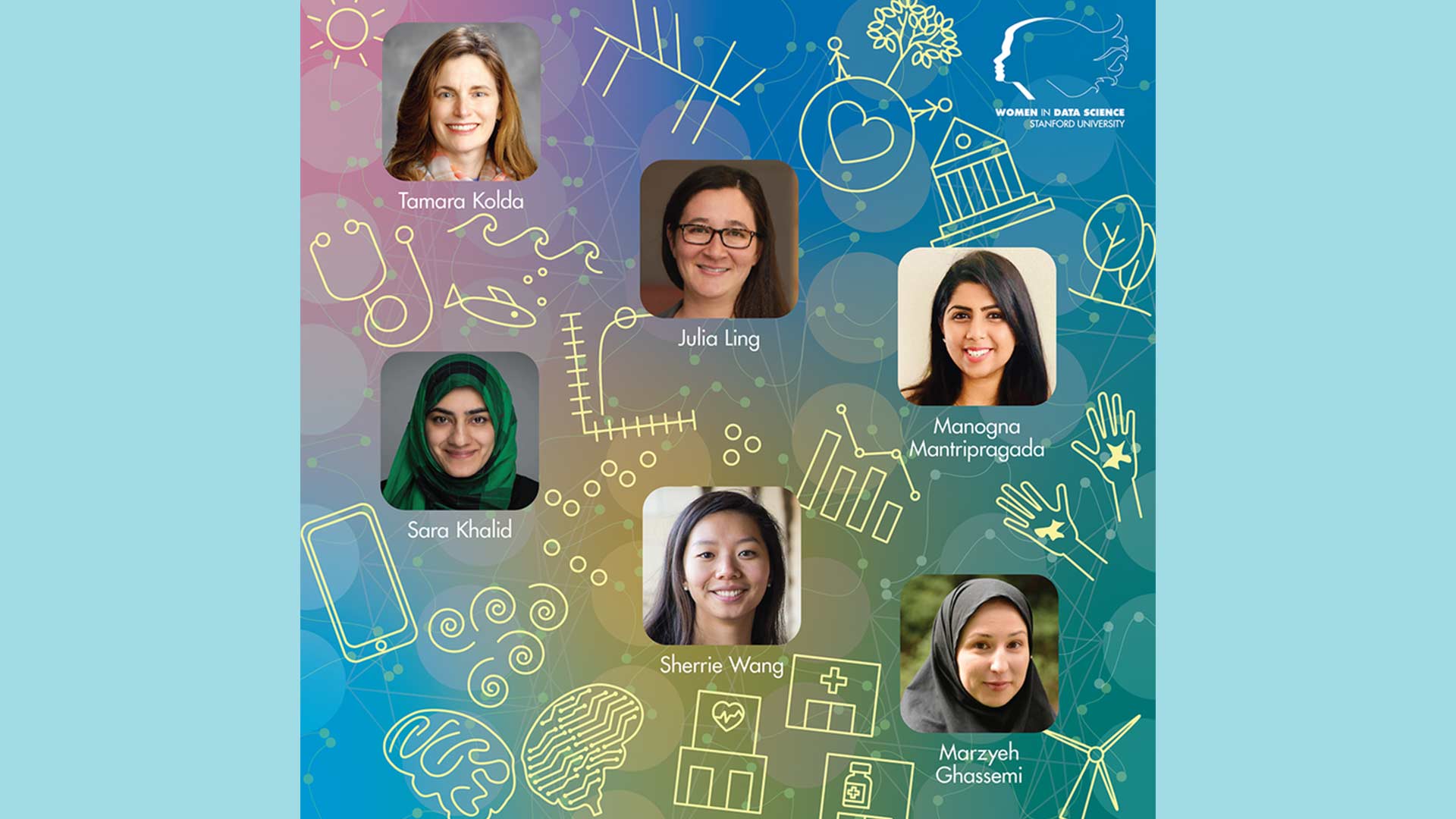For those new to machine learning, the WiDS workshop Baby Steps Towards Building Your First ML Model teaches you how to start your first machine learning project. Manogna Mantripragada, a Data Scientist at Greenlink Analytics, explains the steps to build a machine learning model, and how to know your machine learning model is a good one. She describes what a machine learning model is, different model building options, and some implementation tips and tricks. She also discusses how to move your model building techniques further, how to find and extract different data sets, and how to continue improving your model. At Greenlink Analytics, Manogna uses predictive modeling to understand the energy grid and forecast clean energy scenarios.
Tamara Kolda, a mathematical consultant at MathSci.ai, describes machine learning from a mathematician’s perspective in her Technical Vision Talk, A Mathematician’s View of Machine Learning (and Why It Matters). She explains how a trained machine learning model, such as a deep neural network, takes features as an input and produces a classification as an output. The training phase of machine learning tunes the parameters of the machine learning method (the weights and biases of a neural network) by considering a training set of features with known outputs. Mathematicians think about machine learning models as parameterized functions.
She says this perspective, an alternative to the concept of learning, enables us to better understand both the workings and the boundaries of ML methods. She says that more data and bigger models are not a panacea, and instead we should develop a mathematical methodology for understanding how to move beyond the current limits of machine learning.
There are many application areas for machine learning but pace of adoption in scientific R&D has been slow compared to other areas. Julia Ling, a recognized leader in applying machine learning to scientific applications, digs into this question during her WiDS workshop on Machine Learning for Scientific R&D: Why it’s Hard and Why it’s Fun. She explains the key challenges in machine learning for R&D applications including the small, often-messy, sample-biased datasets; the exploratory nature of scientific discovery; and the curious, hands-on approach of scientific users. Julia discusses potential solutions to these challenges, including transfer learning, integration of scientific domain knowledge, uncertainty quantification, and machine learning model interpretability. She walks through illustrative case studies from both turbulence modeling and materials development to show how these challenges and solutions manifest in real-life use cases. Julia is Technical Lead at Tidal, an X project focused on protecting the ocean while feeding humanity.
Mitigating and adapting to climate change is a significant opportunity to apply machine learning to gain insights and design new solutions. Sara Khalid, University Research Lecturer and Senior Research Associate at University of Oxford, presents a WiDS workshop on Adapting to Climate Change Bit by Bit w/Planetary Health Informatics & Machine Learning. Sara talks about the role of data science and planetary health, reviews state-of-the-art AI and data science methods in planetary health informatics, and summarizes the latest research. She discusses climate adaption and how machine learning can help develop early warning systems for extreme weather events, dangerous air pollution levels, or disease outbreaks. And machine learning can be used for designing cooler cities that will be more resilient in higher temperatures, smarter transportation with less carbon footprint, and a future based on renewable energy. There’s no shortage of data or analytical power today, she hopes that new and experienced data scientists will apply their talents to improve planetary health.
https://recast.simplecast.com/3ecad352-85d3-4548-8583-9d772a06764d?t=1m18s
Food security and sustainable agriculture is another important application area for machine learning. Sherrie Wang, now an assistant professor at MIT, spoke to us about Applying Machine Learning to Solve Global Food Security Challenges on the WiDS podcast when she was a PhD student at Stanford’s Institute for Computational and Mathematical Engineering (ICME). She explains how she applies machine learning methods to help solve global food security challenges. She is using satellite imagery and machine learning to identify and map crops around the world, see where people are most vulnerable, and what interventions or policies have the greatest effect. Sherrie brings an interdisciplinary and entrepreneurial perspective to her research through her work in computational finance, biomedical engineering, and computer vision.
https://recast.simplecast.com/2a195ce2-f007-473d-b29a-0d0806ff9a6a?t=0m57s
Machine learning also has multiple uses in healthcare at the individual level as well as in setting health policy. Marzyeh Ghassemi, an assistant professor at the University of Toronto, is focused on applying machine learning to understand and improve health. In her WiDS podcast, Applying Machine Learning to Understand and Improve Health, Marzyeh explains how she is tackling two issues: eradicating bias in healthcare data and models, and understanding what it means to be healthy across different populations. She says that there are built-in biases in data, access to care, treatments, and outcomes. If we train models on data that is biased, it will operationalize those biases. Her goal is to recognize and eliminate those biases in the data and the models.
The growth of machine learning applications across industries and disciplines has the potential to aid decision making and help design new solutions to some of our world’s most pressing problems. Our WiDS speakers hope their talks will inspire both new and experienced data scientists develop new machine learning solutions that open the next wave of innovation.


